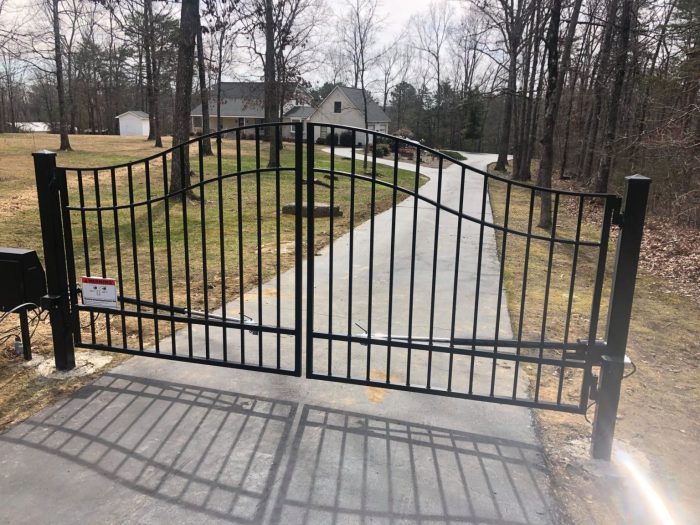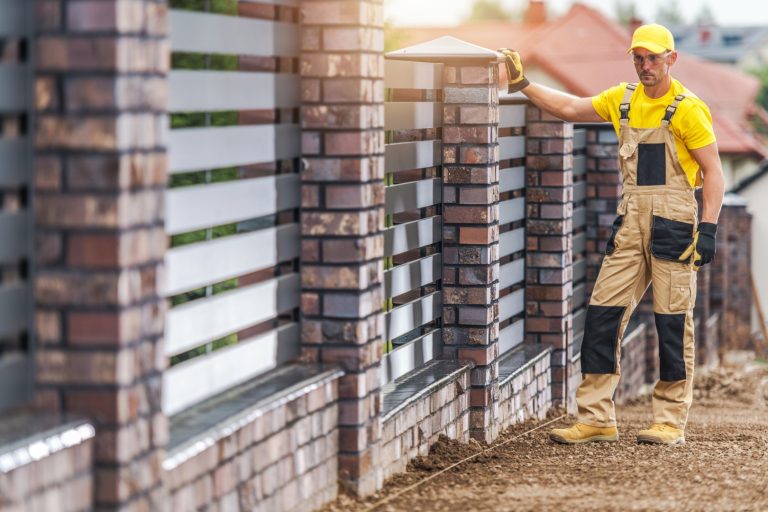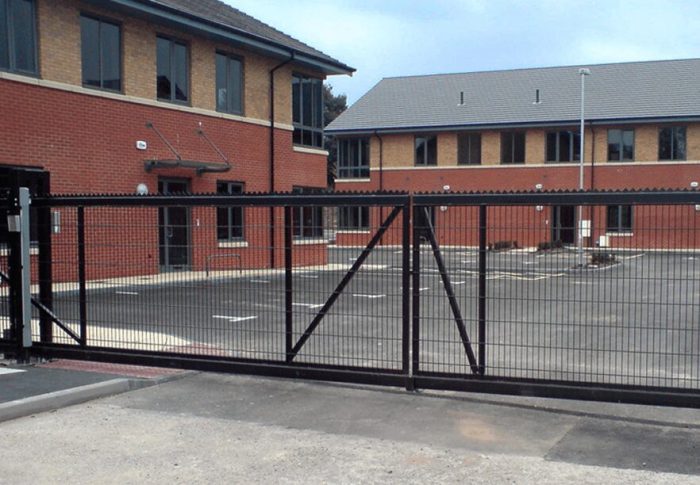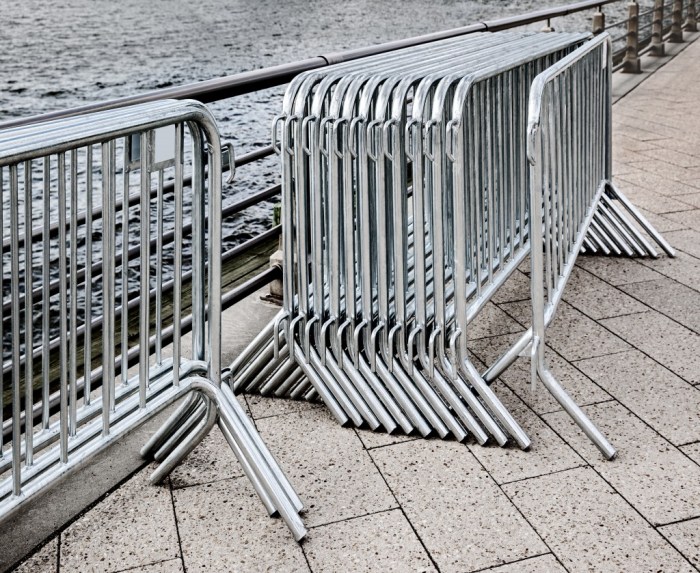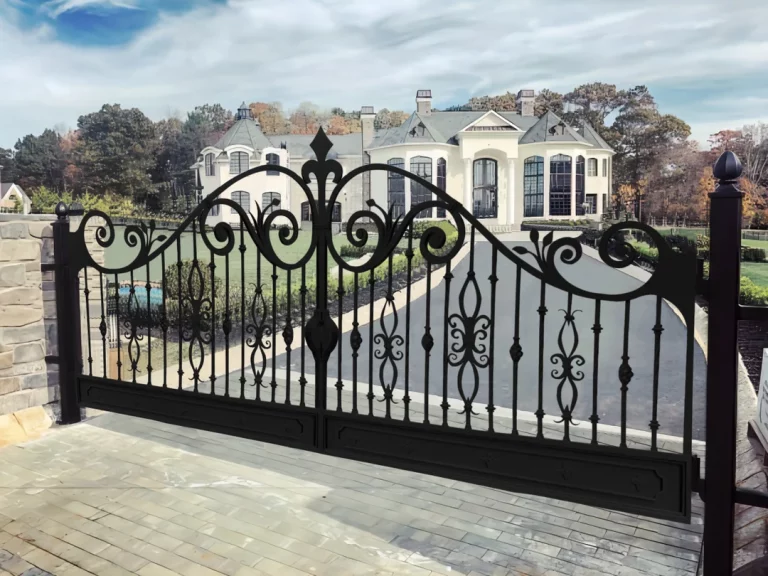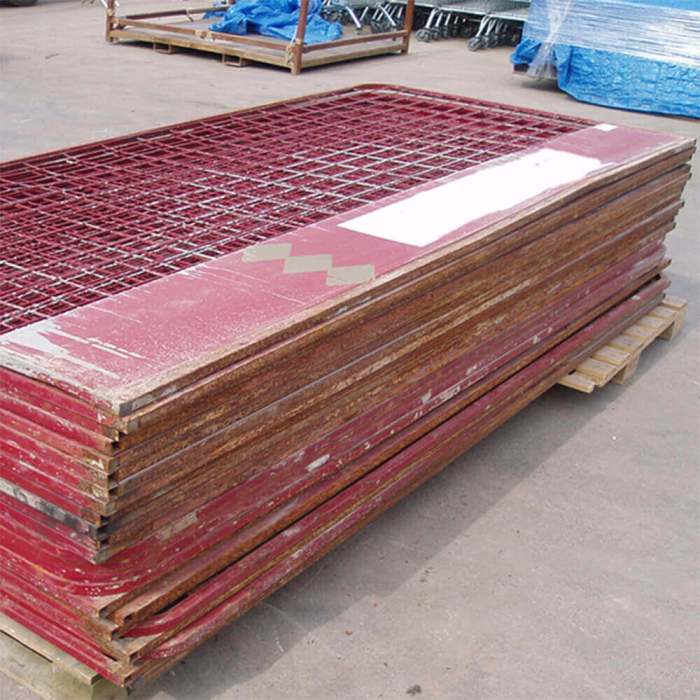Commercial Automatic Gate Companies Near Me
Commercial automatic gate companies near me are essential for securing and streamlining access to various commercial properties. Finding the right company involves understanding your specific needs – whether you need a secure system for an industrial park, a convenient solution for an apartment complex, or a safe and efficient system for a school. This guide helps you navigate the process, from identifying your priorities to selecting and working with a reputable company.
We’ll cover key aspects like choosing the right gate type (swing, slide, or barrier), comparing different access control systems (keypads, card readers, remotes), and understanding the importance of safety features and regular maintenance. We’ll also explore the cost factors, budgeting tips, and how to calculate your return on investment. Let’s get started on finding the perfect automated gate solution for your business.
Understanding Customer Needs
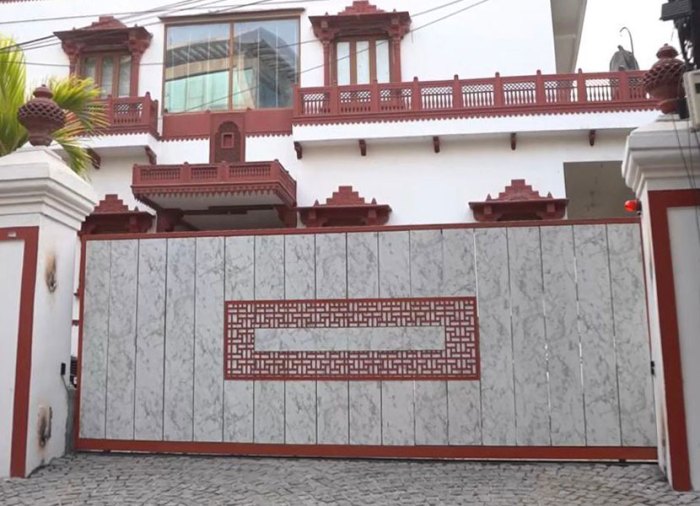
Source: aacessautomation.com
Choosing the right automatic gate system for a commercial property is a significant investment. Understanding your clients’ priorities is crucial for offering effective solutions and building strong business relationships. This section articulates the key concerns, property types, and features that drive customer decisions.
Top Customer Concerns
Three primary concerns consistently emerge when customers seek commercial automatic gate solutions: security, reliability, and cost-effectiveness. Security involves preventing unauthorized access and protecting valuable assets. Reliability ensures the gate operates smoothly and efficiently, minimizing downtime and maintenance costs. Cost-effectiveness encompasses the initial investment, ongoing maintenance expenses, and potential energy savings. These factors often intertwine; a highly secure system might require more complex components, potentially increasing the initial cost but reducing long-term security risks.
Commercial Property Types Requiring Automatic Gates
Automatic gates serve a diverse range of commercial properties. Industrial parks benefit from controlled access to enhance security and streamline logistics. Apartment complexes utilize gates to improve resident safety and manage visitor access. Schools prioritize gates for student safety and controlled access during and after school hours. Other examples include office buildings, shopping centers, and government facilities, each with unique security and access control requirements.
Key Features Customers Prioritize
Customers prioritize several key features when selecting an automatic gate system. Security features like robust gate materials, reliable access control systems (keypads, card readers, remote controls), and integrated surveillance systems are paramount. Reliability is ensured through durable components, regular maintenance programs, and the selection of reputable manufacturers and installers. Aesthetics also play a role; the gate’s design should complement the overall architectural style of the property. Furthermore, features like ease of use, energy efficiency, and integration with existing security systems are also important considerations.
Comparison of Gate Operators
| Type | Pros | Cons | Typical Applications |
|---|---|---|---|
| Swing Gates | Traditional, aesthetically pleasing, and relatively simple to install. | Requires significant space to open, can be affected by wind, and potentially has slower operation. | Residential driveways, smaller commercial entrances. |
| Sliding Gates | Space-saving, less susceptible to wind, and generally faster operation. | A more complex installation requires a straight-line track, which can be more expensive. | Larger commercial properties, industrial parks, and high-security areas. |
| Barrier Gates | Very space-saving, quick operation, ideal for high-traffic areas. | Lower security compared to swing or slide gates, susceptible to damage from collisions. | Parking garages, toll booths, and access control points with high vehicle throughput. |
Gate Company Research & Comparison: Commercial Automatic Gate Companies Near Me
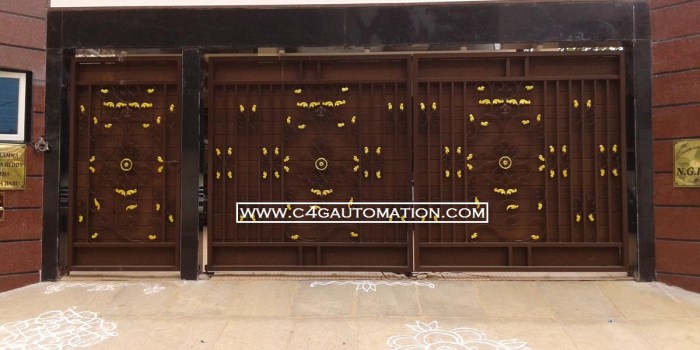
Source: c4gautomation.com
Choosing the right commercial automatic gate company is crucial for security, convenience, and long-term cost-effectiveness. Thorough research and comparison shopping are essential steps to ensure you make the best decision for your business. This section will guide you through the process.
Comparing Local Commercial Automatic Gate Companies
Let’s imagine we’re comparing three hypothetical local companies: “Ace Gate Systems,” “Best Gates Inc.,” and “Superior Gate Solutions.” Ace Gate Systems focuses primarily on installation and offers a limited range of repair services. Best Gates Inc. provides a comprehensive suite of services, including installation, repair, maintenance contracts, and 24/7 emergency service. Superior Gate Solutions specializes in high-end, custom-designed gates and offers premium installation and maintenance packages, but at a higher price point. This highlights the variety of services and pricing structures you’ll encounter.
Factors to Consider When Evaluating a Commercial Automatic Gate Company
Selecting a commercial automatic gate company requires careful consideration of several key factors. These factors directly impact the quality of service, the longevity of your gate system, and your overall satisfaction.
- Experience: How long has the company been in business? A longer track record often indicates greater expertise and reliability.
- Certifications and Licenses: Verify that the company holds the necessary licenses and certifications to operate legally and safely in your area. Look for affiliations with relevant industry organizations.
- Warranty and Guarantees: Understand the warranty offered on both the gate system and the installation. A robust warranty demonstrates confidence in their work and products.
- Customer Reviews and Testimonials: Read online reviews from past clients to gauge their satisfaction with the company’s service, responsiveness, and product quality. Look for consistency in feedback.
- Insurance: Ensure the company carries adequate liability insurance to protect you in case of accidents or damages during installation or repair.
- Pricing and Payment Terms: Obtain detailed quotes from multiple companies, comparing not only the initial cost but also ongoing maintenance expenses.
- Response Time and Availability: Inquire about their response time for emergencies and scheduled maintenance. 24/7 availability is beneficial for critical situations.
Checklist for Vetting Commercial Automatic Gate Companies
Using a checklist helps ensure you don’t overlook crucial aspects during your evaluation.
- Company Name and Contact Information
- Years in Business
- Licenses and Certifications (List specific ones)
- Warranty Details (Duration, Coverage)
- Insurance Information (Type and Coverage Amount)
- Service Offered (Installation, Repair, Maintenance, etc.)
- Customer References (Request at least three)
- Detailed Written Quote
- Payment Terms
- Response Time Guarantee (for emergencies and service calls)
Examples of Customer Reviews
Positive Review: “Best Gates Inc. installed our new gate system flawlessly. Their team was professional, efficient, and cleaned up thoroughly after the job. The gate operates smoothly and quietly, and their maintenance contract offers peace of mind.”
Negative Review: “Ace Gate Systems’ installation was rushed, and the gate has malfunctioned several times since. Their response time to our service calls has been incredibly slow, and the repairs have been costly.” These examples illustrate the importance of thorough research and selecting a reputable company.
Gate System Types & Features
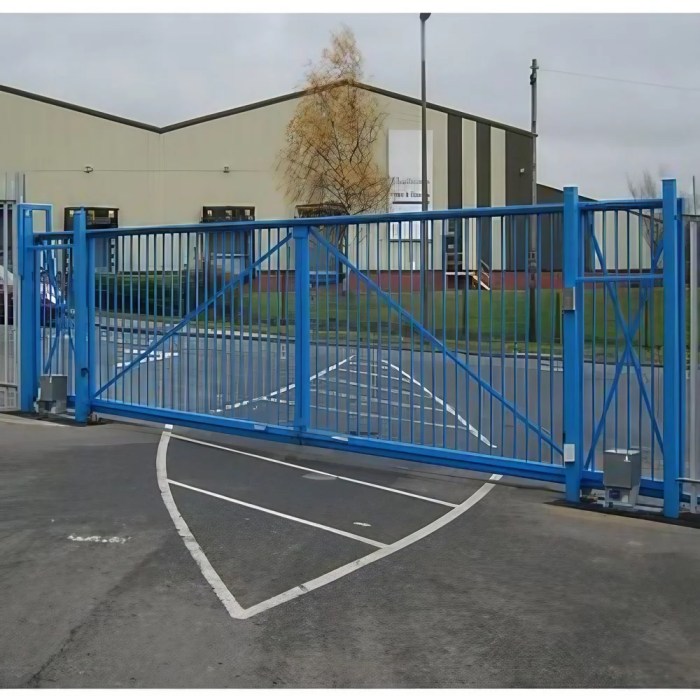
Source: imimg.com
Choosing the right commercial automatic gate system involves understanding the various types available and their features. This decision impacts security, convenience, and the overall aesthetic of your property. Let’s explore the key aspects to consider.
Commercial Automatic Gate System Types
Commercial properties utilize several types of automatic gates, each suited to different needs and environments. Sliding gates move horizontally along a track, ideal for limited space. Swing gates open outwards, requiring sufficient clearance. Bollards, retractable posts, control vehicle access while allowing pedestrian passage. The choice depends on factors such as available space, traffic flow, and security requirements. For instance, a high-security facility might prefer bollards for controlled entry, while a large warehouse might opt for a wider sliding gate to accommodate frequent heavy vehicle traffic.
Gate Access Control Systems
Secure and efficient access control is crucial for commercial properties. Several systems offer varying levels of security and convenience. Keypads provide a simple, coded entry method. Card readers offer greater control, allowing for personalized access permissions. Remote controls offer convenience, enabling users to open the gate from a distance. Biometric systems, using fingerprint or facial recognition, represent the highest level of security, though they are typically more expensive. The best system depends on the level of security needed and the budget. A small office might use a keypad, while a large manufacturing plant might utilize a card reader system with multiple access levels.
Safety Features in Commercial Automatic Gate Systems
Safety is paramount with automatic gates. Photoelectric sensors detect obstacles in the gate’s path, preventing accidents. Emergency stop buttons allow immediate halting of the gate’s operation in case of emergencies. These features significantly reduce the risk of injury or damage. For example, a photoelectric sensor would stop the gate if a person or vehicle is in its path, while an emergency stop button allows immediate cessation of operation if a malfunction occurs. These features are not merely optional; they are essential for compliance with safety regulations and the protection of people and property.
Gate Materials
The choice of gate material significantly impacts durability, aesthetics, and maintenance.
- Steel: Pros: High strength, durability, and security. Cons: Prone to rust without proper maintenance, can be expensive.
- Aluminum: Pros: Lightweight, corrosion-resistant, relatively inexpensive. Cons: Less strong than steel, can dent more easily.
- Wood: Pros: Aesthetically pleasing, can be customized. Cons: Requires regular maintenance, susceptible to weather damage and rot ,and less durable than steel or aluminum.
The best material choice depends on the specific needs of the property and the budget. A high-security area might prioritize steel, while a residential setting might favor the aesthetic appeal of wood. Aluminum often provides a good balance of cost, durability, and maintenance.
Installation & Maintenance

Source: kigalismartsolutions.com
Getting your new commercial automatic gate system up and running involves a carefully planned process. A smooth installation minimizes disruption to your business and ensures years of reliable operation. Regular maintenance is equally crucial for preventing costly repairs and maximizing the lifespan of your investment.
Typical Installation Steps
The installation of a commercial automatic gate system is a multi-stage process requiring skilled technicians. First, a thorough site survey is conducted to assess the area, determine the best gate placement, and identify any potential obstacles. Next, the gate posts are installed, ensuring they are securely anchored to withstand the weight and force of the gate. Then, the gate itself is installed, carefully adjusted for smooth operation. The automation system, including the motor, control box, and sensors, is then installed and wired. Finally, the system is tested and programmed to ensure proper functioning, including safety features like obstacle detection. Thorough testing is done before the system is deemed operational.
Importance of Regular Maintenance, Commercial automatic gate companies near me
Regular maintenance is vital for keeping your automatic gate operating smoothly and safely. Neglecting maintenance can lead to premature wear and tear, malfunctions, and even safety hazards. Regular servicing helps identify and address small problems before they escalate into major, costly repairs. This proactive approach ensures the gate continues to operate efficiently and reliably, minimizing downtime and maximizing its lifespan. For example, a simple lubrication of moving parts can prevent costly motor replacements down the line.
Potential Maintenance Issues and Solutions
Regular maintenance should include inspections of all components. Here are some common issues and their solutions:
- Problem: Gate opens or closes slowly or erratically. Solution: Check for obstructions, lubricate moving parts, and inspect the motor and its connections for damage or wear.
- Problem: Gate fails to open or close. Solution: Check power supply, inspect the control box for malfunctions, and verify the functionality of sensors and safety devices.
- Problem: The Gate makes unusual noises. Solution: Identify the source of the noise (e.g., loose bolts, worn bearings) and address the issue through tightening, lubrication, or replacement of parts.
- Problem: Sensors malfunction. Solution: Clean the sensors and check for obstructions. If the problem persists, replace the faulty sensor.
Typical Gate System Installation Diagram
Imagine a cross-sectional view. On the left, we see a sturdy concrete post firmly embedded in the ground. Attached to this post is a robust gate arm, made of durable metal. The gate arm smoothly pivots on strong hinges. The gate itself, perhaps made of heavy-duty steel or wood, is connected to the arm. On the right, another concrete post mirrors the structure on the left. Between the posts, slightly above the ground, is the motor unit, neatly housed in a weatherproof casing. Wires run discreetly underground, connecting the motor to a control box located nearby, often in a protected area. Above the gate, nearly invisible, are the photoelectric sensors, providing safety by detecting any obstacles in the gate’s path. This entire system is designed for seamless operation and maximum security.
Cost & Budgeting

Source: imagebali.net
Getting a commercial automatic gate system installed is a significant investment, but understanding the cost factors and budgeting effectively can make the process smoother. This section breaks down the cost elements and offers strategies for managing your budget and maximizing your return.
Several factors influence the final cost of your commercial automatic gate system. The type of gate (swing, sliding, cantilever), its size and material (steel, aluminum, wood), the level of automation (single or dual gate operation, access control systems), and the complexity of the installation (site conditions, existing infrastructure) all play a crucial role. Additional features such as security systems (keypads, card readers, remote access), lighting, and landscaping integration will also add to the overall expense.
Pricing Structures
Gate companies typically offer various pricing structures. Some may charge per gate, offering a set price for a standard installation. Others might use a per-project pricing model, providing a comprehensive quote encompassing all aspects of the project, including site assessment, design, materials, labor, and installation. A few may even offer tiered packages with varying levels of features and functionalities at different price points. It’s important to compare quotes based on the same scope of work to ensure a fair comparison.
Budgeting for Installation and Maintenance
Effective budgeting involves several key steps. First, obtain detailed quotes from multiple reputable gate companies. These quotes should itemize all costs, including materials, labor, permits, and any potential unforeseen expenses. Second, allocate a contingency budget of 10-20% to account for unexpected issues that might arise during the installation process. This could include things like unforeseen site conditions requiring additional excavation or adjustments to the design. Third, factor in ongoing maintenance costs, which might include regular lubrication, inspections, and potential repairs. A well-maintained gate system will extend its lifespan and reduce the likelihood of costly repairs down the line. Finally, consider financing options if necessary, such as leasing or loans, to spread the cost over time.
Return on Investment (ROI) Calculation
Calculating the ROI for a commercial automatic gate system involves comparing the initial investment with the long-term benefits. The initial investment includes the purchase price, installation costs, and any additional features. Benefits can include increased security, improved operational efficiency (reduced labor costs associated with manual gate operation), enhanced property value, and improved curb appeal.
ROI = (Total Benefits – Total Costs) / Total Costs
For example, let’s say a company invests $10,000 in a new automatic gate system. Over five years, it saves $2,000 annually in labor costs and experiences a $5,000 increase in property value. The total benefits over five years are $15,000 ($10,000 + $5,000). The ROI would be: ($15,000 – $10,000) / $10,000 = 0.5 or 50%. This indicates a strong return on the investment. Remember that this is a simplified example, and a more comprehensive ROI calculation should consider factors like the gate’s lifespan, maintenance costs, and potential future upgrades.
Closure
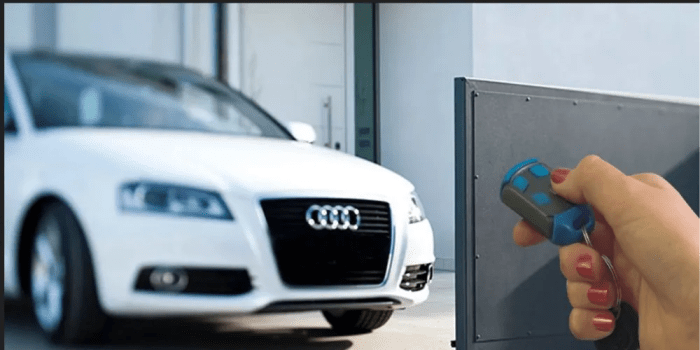
Source: imimg.com
Securing the right commercial automatic gate company is a crucial investment, impacting both security and operational efficiency. By carefully considering your needs, researching potential companies, and understanding the various gate systems and maintenance requirements, you can make an informed decision. Remember to check certifications, read reviews, and get multiple quotes before making your final choice. A well-chosen system will provide years of reliable service, enhancing security and improving the overall functionality of your property.
